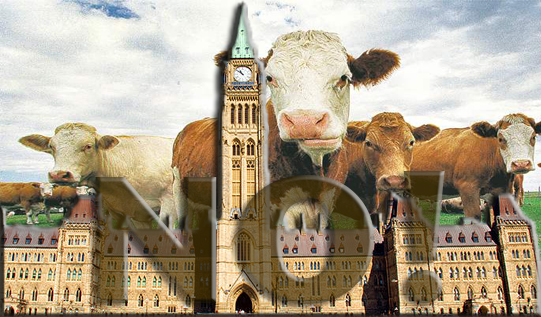Meat Sector Calls on Government to Reverse Course to Keep Food Prices Affordable and Help Save Rural Canada’s Economy

Recent changes to foreign worker rules from the Government of Canada are having a disproportionate impact on the rural Canadian economy, and the national organizations representing the Canadian meat industry are calling on the Government to reconsider these changes
As published by the Canadian Meat Council
The Canadian Meat Council, the Canadian Cattle Association, National Cattle Feeders’ Association, and the Canadian Pork Council are asking Government to restore the Temporary Foreign Worker Program’s Workforce Solution Roadmap, a roadmap introduced in 2022, to address the industry’s critical labour shortage.
While we understand the federal government is seized with a housing shortage, temporary foreign workers are not the problem, representing only 9% of the temporary resident population. Meanwhile, the decision to reduce temporary foreign worker numbers is having the precise opposite impact the government says it wants on food affordability in Canada.
“Changes to the Temporary Foreign Worker program have had a disproportionate impact in rural areas”On May 1, producers and processors faced not only the reduction of the 30% cap, but a reduction in the time limit for a labour market impact assessment (LMIA)s. Both of these changes were made without industry consultation, and are already having an impact on productivity, competitiveness, and levels of food production possible in Canada. Agriculture accounts for nearly 10% of Canada’s gross domestic product, and the sector provides 1 in 9 jobs within the Canadian economy.
“Every job unfilled in our barns, in our processing facilities, and in our supply chain has an outsized impact on rural areas because Canada does not have additional people living in these areas who can fill these jobs,” said Rene Roy, Chair of the Canadian Pork Council. “If there’s a shortage of workers in the processing sector, it runs the risk that producers can’t ship their product to market, causing uncertainty for producers and consumers alike. We need to help recruit more new Canadians to rural areas, and creating uncertainty defeats our efforts to convince people to come join our industry.”
“Beef producers are integral to Canada’s rural economy and changes to the temporary foreign worker program will increase pressures on our labour challenges,” said Nathan Phinney, President of the Canadian Cattle Association. “It is essential that we have a reliable supply chain for our economic sustainability and ability to produce for Canadians and global consumers. Our trade partners need steady, consistent supply-any disruption can impact our ability to compete on a global scale, while keeping costs down at home.”
“As part of the labour market impact assessment (LMIA) application for bringing in foreign labour, producers and processors alike must advertise in Canada and show that Canadians are not willing to take the job,” said Will Lowe, Chair of the National Cattle Feeders’ Association. “Now with a reduction in the amount of time this assessment is valid as well as the length of time assessors take to review applications, there is concern that the industry will not be able to bring in much-needed foreign workers. The end result will ultimately impact the supply of food Canadian farmers can provide nationally and globally.”
“Industry has proven its case time and again to Government. The Government decision to reduce the cap did not consider the impact to food security data and was instead a knee-jerk reaction to a housing challenge that our industry is not responsible for,” said Chris White, President & CEO of the Canadian Meat Council. “Our industry is mostly located in rural communities, and those communities still depend on these workers to keep our operations going so we can feed Canadians at an affordable price and bring quality Canadian products to the world.”
Our associations will, on behalf of our members, continue to ask Government to hear the concerns of producers and processors – indeed, the entire agricultural supply chain – as we work to improve food security and help ensure affordability for Canadian consumers and our global partners. We urge the government to work with us on these important aims through advanced consultation and dialogue.












